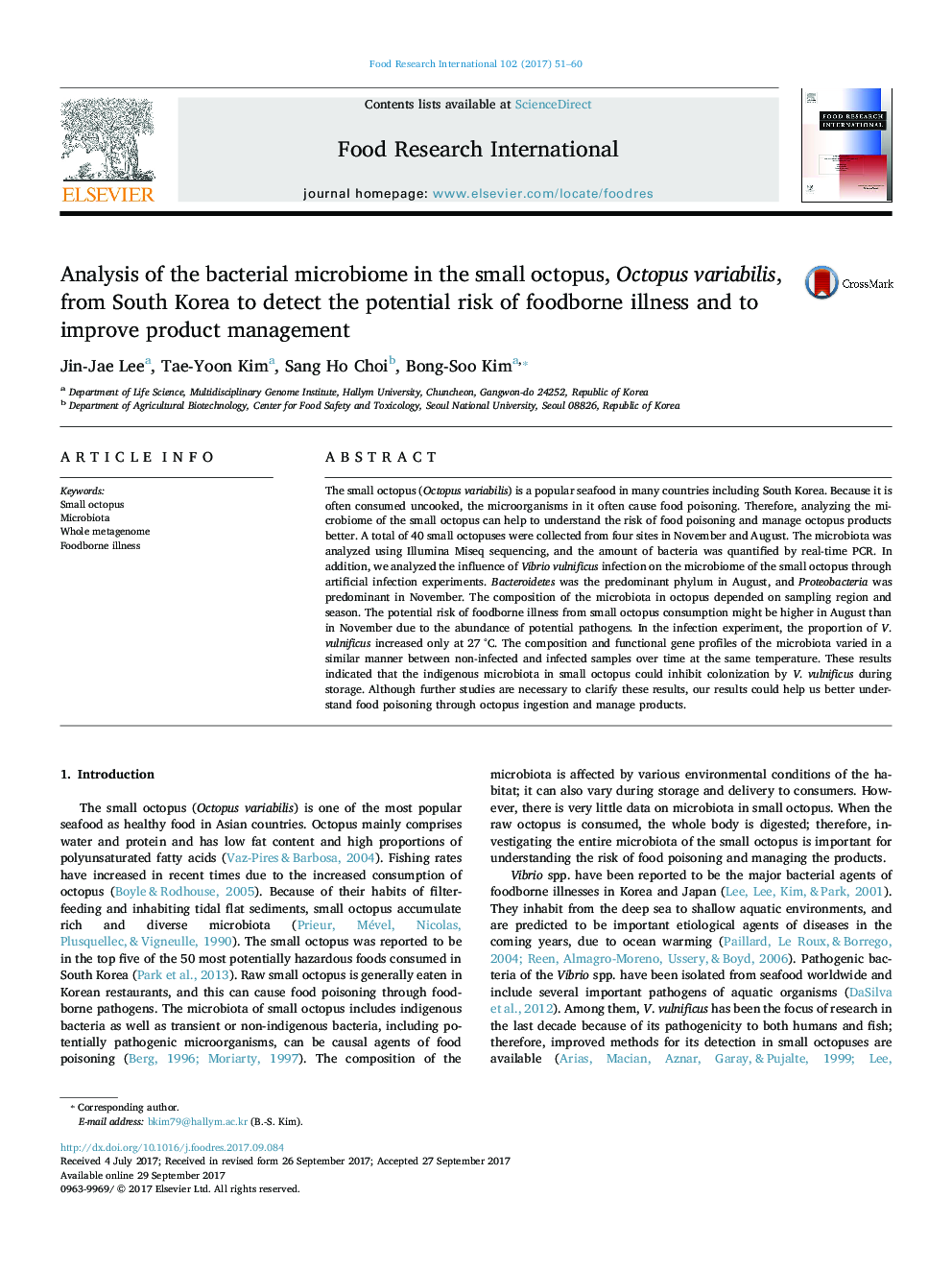| کد مقاله | کد نشریه | سال انتشار | مقاله انگلیسی | نسخه تمام متن |
|---|---|---|---|---|
| 5767761 | 1628449 | 2017 | 10 صفحه PDF | دانلود رایگان |

- The microbiota of small octopus from four different sites in Korea was analyzed.
- Bacteroidetes was dominant in August and Proteobacteria was dominant in November.
- The microbiota of small octopus differed by sampling site and water temperature.
- The potential risk of foodborne illness might be higher in August than in November.
- Colonization by V. vulnificus could be inhibited by indigenous microbiota of small octopus.
The small octopus (Octopus variabilis) is a popular seafood in many countries including South Korea. Because it is often consumed uncooked, the microorganisms in it often cause food poisoning. Therefore, analyzing the microbiome of the small octopus can help to understand the risk of food poisoning and manage octopus products better. A total of 40 small octopuses were collected from four sites in November and August. The microbiota was analyzed using Illumina Miseq sequencing, and the amount of bacteria was quantified by real-time PCR. In addition, we analyzed the influence of Vibrio vulnificus infection on the microbiome of the small octopus through artificial infection experiments. Bacteroidetes was the predominant phylum in August, and Proteobacteria was predominant in November. The composition of the microbiota in octopus depended on sampling region and season. The potential risk of foodborne illness from small octopus consumption might be higher in August than in November due to the abundance of potential pathogens. In the infection experiment, the proportion of V. vulnificus increased only at 27 °C. The composition and functional gene profiles of the microbiota varied in a similar manner between non-infected and infected samples over time at the same temperature. These results indicated that the indigenous microbiota in small octopus could inhibit colonization by V. vulnificus during storage. Although further studies are necessary to clarify these results, our results could help us better understand food poisoning through octopus ingestion and manage products.
240
Journal: Food Research International - Volume 102, December 2017, Pages 51-60